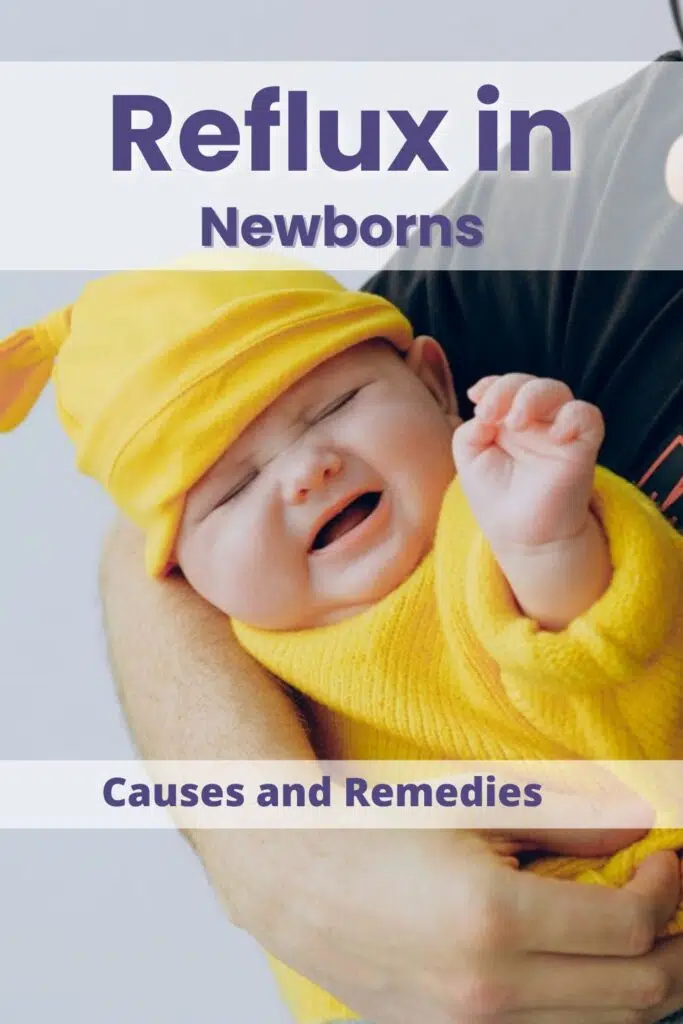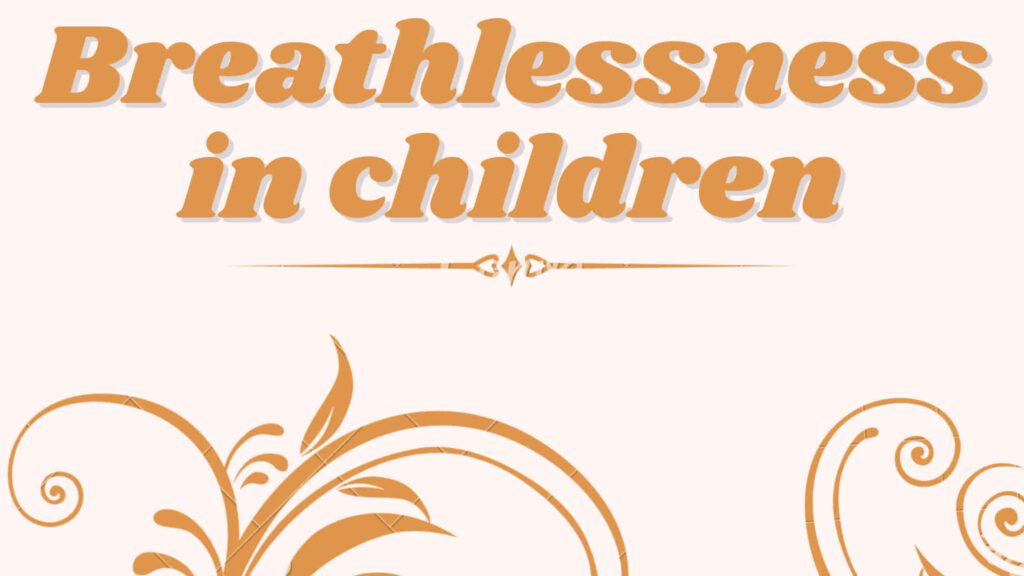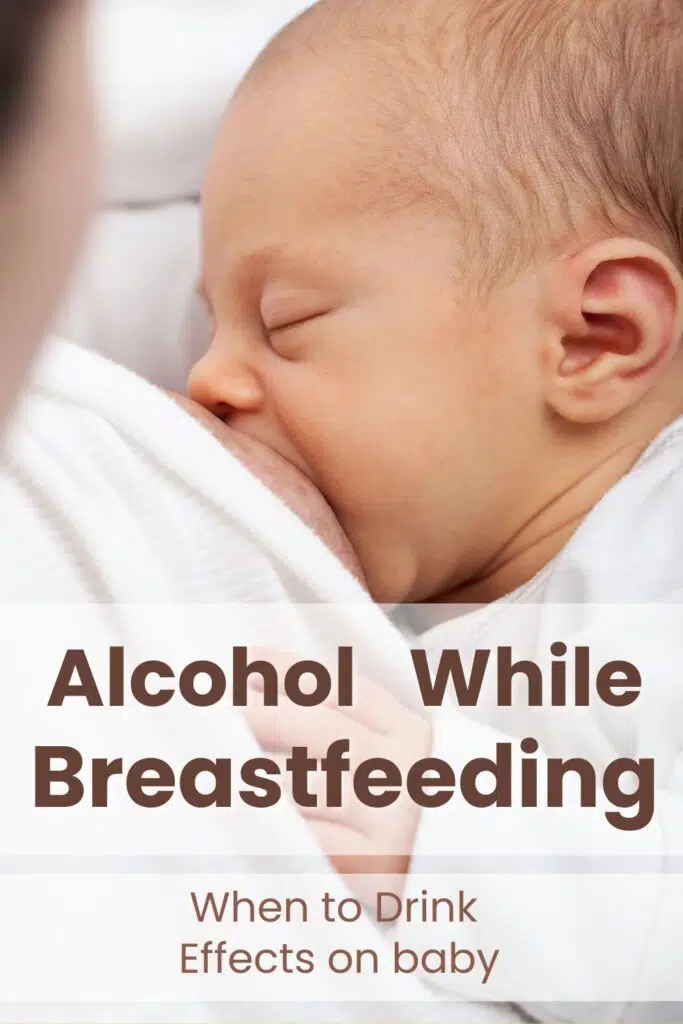Does warm milk help with Reflux in newborn babies? When does the reflux is at its peak, when does it stop, What is silent reflux, and what is the difference between acid reflux vs spit-up in babies?
Is your baby crying, irritated and fuzzy. We will be looking out for the Causes, Prevention, and Remedies of Reflux in infants and what is silent reflux in babies.
Table of Contents
What is Reflux in newborns (in Babies / Infants)?
There are two terms when we consider reflux in babies,
1. Gastro-Esophageal Reflux (Spit-up):
This is characterized by small Spitting of white-milky vomit after a milk meal. GER is completely normal for a baby. This is not accompanied by any discomfort, fuzziness, or crying.
2. Gastro-Esophageal Reflux Disease(GERD):
Frequent Severe regurgitation of stomach contents accompanied by discomfort, irritability, and refusal to consume milk. GERD will usually resolve when your baby will be between 12 months to 18 months old. This if left untreated in infants can lead to respiratory complications such as choking, cough, wheezing, and even aspiration pneumonia.
Causes of GER Reflux Spitting in babies/infants
- A baby may be drinking their milk too quickly:
- This can lead to the swallowing of air along with the milk.
- The swallowed air tends to escape back after some time resulting in regurgitation of liquids as well.
- To avoid this, consider feeding your baby from one side at each meal and prevent reflux by avoiding 2 forceful milk feeding. You can achieve this in bottles also by making the hole in the nipple of appropriate size with respect to the age of the baby.
- Baby may be positioned declined during feeding
- If the baby’s head is in a declining position while feeding, the milk will not completely enter the stomach due to the opposing effects of gravity.
- In this case, you need to keep the baby’s head above the belly while breastfeeding.
- If you are using a bottle to feed your baby, try positioning your baby in your arms or you can also try this in bed with the help of pillows.
- You may not be burping the baby frequently
- As GER is common in babies, a worthy practice would be to frequently burp your baby by hugging him/her in an upright position and gently patting their back.
- Burping can be done every 1 ounce of milk (in bottle feeders) or 2-4 minutes in breastfeeding.
- This will allow the passage of small air and prevent its accumulation to avoid the big forceful spit-up after the full meal.
Causes of GERD Acid Reflux in infants
The main and foremost cause of GERD Reflux in infants is the Relaxation of the Muscle present at the opening of the stomach called the Lower Esophageal Sphincter.
So this is the muscle that remains contracted (door closed) to prevent the backflow of stomach acid up into the food pipe and mouth and only opens when the baby swallows their food.
This door of the baby’s stomach isn’t fully developed yet to function properly.
If this Door opens (muscle relaxes), Stomach acid and contents tend to regurgitate into the food pipe and mouth. Caffeine or food allergy can cause reflux in newborn babies.
In infants with GERD, There is a Transient opening of this door allowing the stomach contents to reflux in almost 80% of the cases.
This kind of reflux can also be prevented by Elevating the baby’s head and thorax and holding for 20-30 min after every meal.
Prevention and remedies of reflux in newborn babies
- Try to eliminate Caffeine and Dairy products from your diet. Spicy food can also cause reflux in breastfeeding babies.
- Try to feed your baby small portions, more frequently but slowly.
- Do not overfeed the baby.
- Try to make baby’s feed semi-solid by mixing Milk/Breastmilk with some baby cereals and feeding it while keeping in mind all of the above steps.
- Try to include probiotics (Curd/Yoghurt) in your baby’s diet. It can significantly reduce constipation, reflux, fussiness crying, and irritability. For probiotic medications, please consult your pediatrician.
- If these steps are not working for you, your baby may be having some sort of food allergy. Try to knock off some common allergens from your diet as well as your baby’s.
- Common allergens include Milk and its products, Gluten, Soy, eggs, etc.
- Elimination is not the end goal, once the symptoms subside, less often, you should be eating more healthy food and then slowly and progressively increase the frequency and see if the baby tolerates the allergens.
Does warm milk help with acid reflux?
No, warm milk does not help with acid reflux in infant newborns. But feeding them small meals, slowly and more frequently surely does help. You can also try to make their feed semi-solid in consistency to prevent acid reflux.
When does the reflux in babies is at its peak?
Reflux usually peaks from the 3rd to 4th month up to the 18th month. Reflux usually occurs after feeding the baby and laying him/her flat. The baby may arch his/her back and cry a lot.
When does reflux stop in babies?
Reflux in babies stops once the Esophageal sphincter matures.
This can usually take time between 12 to 16 months.
What is Silent Reflux in babies?
Normally in reflux, the baby spits up and is irritated and fuzzy. But in Silent reflux, the baby does not spit any food but is undergoing significant refluxes and burning sensation indicating as arching of his back along with fuzziness, irritability, and crying.
Other rare causes of reflux symptoms in infants
- Allergy to cow milk protein: Protein in Cow’s milk is known to cause GERD in children. Elimination of cow milk from the mother and baby’s diet will remarkably improve the symptoms of GERD in babies.
- Spicy food and some medication consumption by mothers can cause GERD in breastfeeding babies.
- There may be irritability and pain due to other causes but it may co-exist with GER (Normal Reflux) giving the picture of GERD. Consult your doctor for ruling out other causes of pain and irritability (neurologic disorders, constipation, and infection).
- Due to Closed intestinal passage (Pyloric Stenosis): The food does not get passed out from the stomach to the intestines resulting in vomiting.
- Due to metabolic diseases such as Urea Cycle defects, etc.
Check out these 7 most common problems of shortness of breath in children



